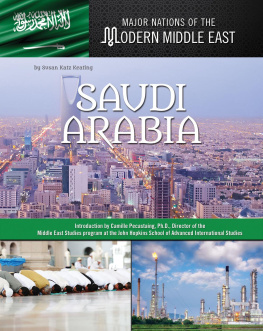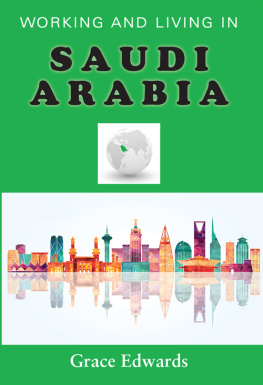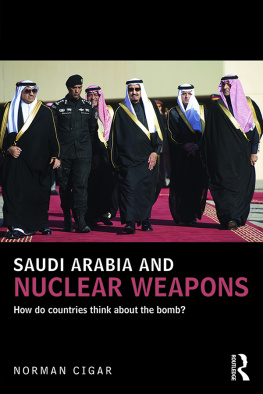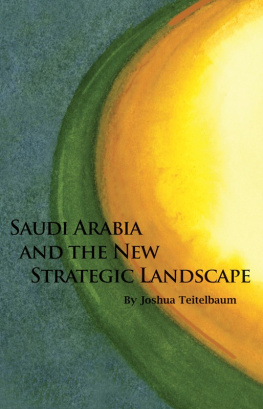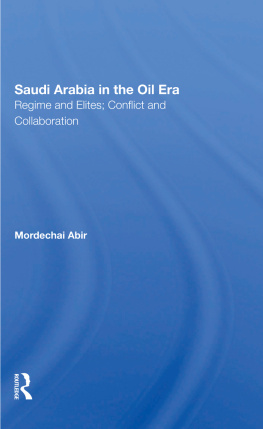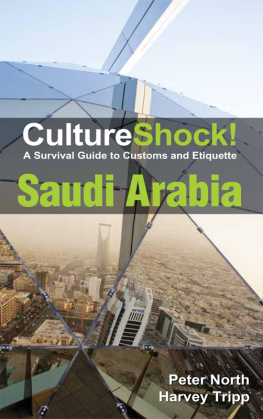Stanford Studies in Middle Eastern and Islamic Societies and Cultures
GRAVEYARD OF CLERICS
EVERYDAY ACTIVISM IN SAUDI ARABIA
Pascal Menoret
STANFORD UNIVERSITY PRESS
Stanford, California
STANFORD UNIVERSITY PRESS
Stanford, California
2020 by the Board of Trustees of the Leland Stanford Junior University.
All rights reserved.
No part of this book may be reproduced or transmitted in any form or by any means, electronic or mechanical, including photocopying and recording, or in any information storage or retrieval system without the prior written permission of Stanford University Press.
Printed in the United States of America on acid-free, archival-quality paper
Library of Congress Cataloging-in-Publication Data
Names: Mnoret, Pascal, 1976 author.
Title: Graveyard of clerics : everyday activism in Saudi Arabia / Pascal Menoret.
Other titles: Stanford studies in Middle Eastern and Islamic societies and cultures.
Description: Stanford, California : Stanford University Press, 2020. | Series: Stanford Studies in Middle Eastern and Islamic societies and cultures | Includes bibliographical references and index.
Identifiers: LCCN 2019040805 | ISBN 9780804799805 (cloth) | ISBN 9781503612464 (paperback) | ISBN 9781503612471 (ebook)
Subjects: LCSH: Political participationSaudi Arabia. | Political activistsSaudi Arabia. | Islam and politicsSaudi Arabia. | SuburbsPolitical aspectsSaudi Arabia. | Saudi ArabiaPolitics and government.
Classification: LCC JQ1841.A91 M46 2020 | DDC 322.409538dc23
LC record available at https://lccn.loc.gov/2019040805
Cover design: Rob Ehle
Cover photo: Paul Stallan
Text design: Kevin Barrett Kane
Typeset at Stanford University Press in 10.5/14.4 Brill
For Mutti (19362018)
Saudi Arabia is a graveyard of clerics and a prison for preachers.
Abu Muhammad al-Maqdisi
Contents
PART I
THE ISLAMIC AWAKENING
Chapter 1
GRAVEYARD OF CLERICS
I QUIT SMOKING THANKS TO ISLAMIC ACTIVISTS.
I had been researching youth politics in Riyadh for about two years, chain-smoking between interviews but never during them, for Islamic activiststhe bulk of my interlocutorsloathed tobacco.
Friends and interviewees were concerned about my habit and one of them recommended a religious charity that helped smokers. I drove there one day. Inside the building a volunteer greeted me with a grin. He looked like many religious activists in Saudi Arabia: with a beard, short white robes, a flowing headdress, and a boisterous sense of purpose. He took me to an office where he measured my lung capacity with a small device. Looking at the results, he praised the speed of my exhalation and said recovery would be easier than I thought.
He then led me to a large room where there was a tall transparent container, with a slot in the top, that looked vaguely like a ballot box. The container was filled with crumpled cigarette packs. A few others joined us there for an impromptu ceremony: the volunteer invited me to take out the pack that had been distorting the front pocket of my jeans, crush it, and throw it into the box, all of which I did, and they applauded. From there the man led me into a room of examination tables covered in clean sheets. The blinds were shut and the lights were dimmed; each table had a pillow and a pair of electrodes. I lay down and he fixed the electrodes to the small flaps in front of my ear openings. He told me to relax and turned on a rheostat.
A mild electric current passed through my skull between my ears. I closed my eyes and focused on breathing. The buzz receded into the background; I dozed off to the swish of cars on the avenue outside. After about twenty minutes, the man came back, removed the electrodes, and told me to come back the next day.
As I left the building I inhaled the dusty air, filled with car exhaust and cooking scents. A man was walking down the street, a cigarette dangling from the corner of his mouth. He walked past and I caught a full whiff of tobacco smoke.
I thought I would be attracted to the smell, but what I perceived was an odor I had not sensed in fourteen years: it was acrid and unpleasant, not the seductive aroma I had grown to love. Cigarette smoke was now as alien to me as it had been before I started smoking. The electrodes had acted on my senses like a time machine.
The treatment was free of charge and lasted for a week, during which I did not touch tobacco. But after the electric treatments stopped, I started smoking again. I cursed the false hope the charity had given me, then forgot about it. My life as a researcher went on as before until one day, a few months later, I had to put out my morning cigarette after a couple of drags. This was very unusual. The days first cigarette was often the best, but that one I found repulsive. I remembered the Islamic charitys electrodes and ran to the nearest pharmacy. I bought nicotine patches, vitamins, and magnesiumand I braced myself.
I told this story a few years later to a Saudi student in the United States, a social scientist who was closely watching the political scene in his country. He told me he regretted that Islamic activists had vanished from public spaces in recent years: they were now in prison, in hiding, or dead.
Without them, we are left alone to face the Saudi state, he said. They used to organize society in an autonomous manner. They created all kinds of institutions that were outside of the states purview. Your addiction clinic is a good example of this.
That this chain smoker and amateur of strong cocktails missed Islamic activists was a testimony to their wide appeal. Smoking was so prevalent in the country that addiction clinics sprouted up in several cities. Like other The addiction clinic was not only a political tool, however, but also a site of transformation. There everyday smokers could reform themselves by submitting to the higher orders of meditation and electricity.
Addiction clinics were part of a nationwide network of charities, youth movements, womens groups, and activist organizations that emerged in the 1970s and were called, as a whole, the Islamic Awakening or sometimes, simply, the Awakening. Awakening activists critiqued and protested the top-down modernization of the country by princes and experts, the Saudi-U.S. military alliance, Western arms sales to the country, and the repression of political and religious activism. They organized youth movements, provided a purpose to generations of Saudis, and helped members of the middle and the lower middle class gain in confidence and self-respect. And despiteor because oftheir popularity, they were repressed and criminalized.
The eventual political crackdown was the outcome of long-term international cooperation. Abd al-Aziz Al Saud created the Saudi state in the first decades of the twentieth century. To fund his political projects, he sought support from the Ottoman Empire, then the British Empire, and eventually the United States. The Ottomans appointed Abd al-Azizs father kaymakam, local imperial administrator. The British made Central Arabia into a protectorate during World War I and helped Abd al-Aziz conquer the vast territories that extend from the Red Sea to the Persian Gulf. In the 1930s, U.S. oil companies carved an informal empire out of the Saudi oil province, a territory east of Riyadh that was the size of Ukraine. Their corporate influence was soon formalized in a U.S. military protectorate over Saudi Arabia.
U.S. Americans introduced wage labor, military air bases, economic planning, racial segregation, and suburban developments to Saudi Arabia. They powered the repressive apparatus of a state that grew more authoritarian as more Western experts joined it. Western modernity produced pipelines, asphalt roads, single-family housesand torture chambers. In oil-fueled, Western-powered Saudi Arabia, dissidents became traitors, and traitors could be tortured and disposed of.
Next page

